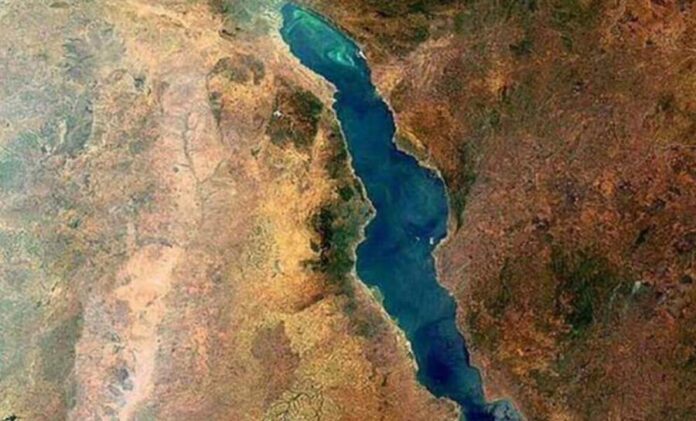Africa Is Splitting Apart: A New Ocean Is Forming Faster Than Anyone Predicted – Report
A dramatic transformation is unfolding in Africa as tectonic forces drive the continent toward the formation of a brand-new ocean. At the heart of this shift lies the East African Rift System, a massive network of faults and fissures that is reshaping the region’s geography at an accelerated pace. With tectonic plates separating faster than previously thought, scientists are uncovering surprising details about the future of this phenomenon—but the full story of its impact on Africa’s landscape and ecosystems is even more astonishing. Could the timeline for this new ocean be closer than expected?
The African continent is undergoing a dramatic transformation as tectonic forces carve a path toward the formation of a new ocean. The East African Rift System, a vast network of faults stretching from Mozambique to the Red Sea, is at the heart of this geological upheaval. Recent studies reveal that the region’s tectonic plates are separating at an accelerated pace, potentially reshaping the continent’s landscape and ecosystems in the coming millennia. This process, previously thought to span tens of millions of years, is now estimated to occur within a million years—or possibly even sooner.
Rapid Tectonic Activity is Reshaping Africa’s Geography
The movement of the African and Somali plates at approximately 0.8 centimeters per year is driving the formation of a massive rift in East Africa. In the Ethiopian desert, this rift spans 60 kilometers and reaches depths of 10 meters. Such changes, while slow on a human timescale, mark the early stages of a significant geological event: the birth of a new ocean basin.
Cynthia Ebinger, a geoscientist from Tulane University, emphasizes the accelerating pace of this transformation:
“We’ve reduced the timeframe to about 1 million years, possibly even half that,” Ebinger explains. She notes that a major seismic event, such as an earthquake, could further speed up the process, though predicting such occurrences with precision remains a challenge.speed up the process, though predicting such occurrences with precision remains a challenge.
Echoes of the Past: Shaping a New Ocean
The East African Rift’s development mirrors the creation of the Atlantic Ocean millions of years ago, making it the only place on Earth where continental crust is transitioning into oceanic crust in real time. This rare opportunity allows scientists to study the intricate details of such a transformation, including the processes governing the movement of tectonic plates and the formation of new geological features.
In 2005, an event in Ethiopia underscored the rift’s volatility. Over 420 earthquakes within a short period created a large fissure in the Afar region, an area characterized by its extreme temperatures and arid conditions. What would typically unfold over centuries occurred in mere days, challenging long-held assumptions about geological timescales.
Implications for Africa’s Future Landscape
The formation of a new ocean could dramatically alter Africa’s geography. Landlocked countries like Zambia and Uganda may gain coastlines, reshaping their economies and ecosystems. This shift underscores the dynamic nature of Earth’s surface and the interplay of natural forces that continually redefine our planet.
Potential Impacts of a New Ocean Formation
- Geographical Changes: Creation of new coastlines and the splitting of the African continent.
- Economic Implications: Emergence of new trade opportunities for previously landlocked countries.
- Ecosystem Shifts: Formation of marine habitats in newly developed ocean basins.
- Infrastructural Challenges: Adjustments required in land management and coastal infrastructure.
However, this process also presents significant challenges for researchers. Accurate models predicting these changes, effective monitoring techniques, and understanding the environmental impacts of a new ocean basin require multidisciplinary collaboration.
A Call for Innovative Research
As scientists study the implications of this tectonic activity, the accelerated timeline demands innovative approaches to understanding Earth’s geology. Ebinger and her peers are refining models of plate movement, seismic activity, and crustal transformation. Their work not only unravels the mysteries of this phenomenon but also prepares the scientific community for the broader impacts on the continent.
The new ocean forming in East Africa serves as a powerful reminder of Earth’s ever-changing nature. As research progresses, this extraordinary event continues to reveal the complexities of our planet’s geology and the remarkable forces shaping its future.
Source: Daily Galaxy















